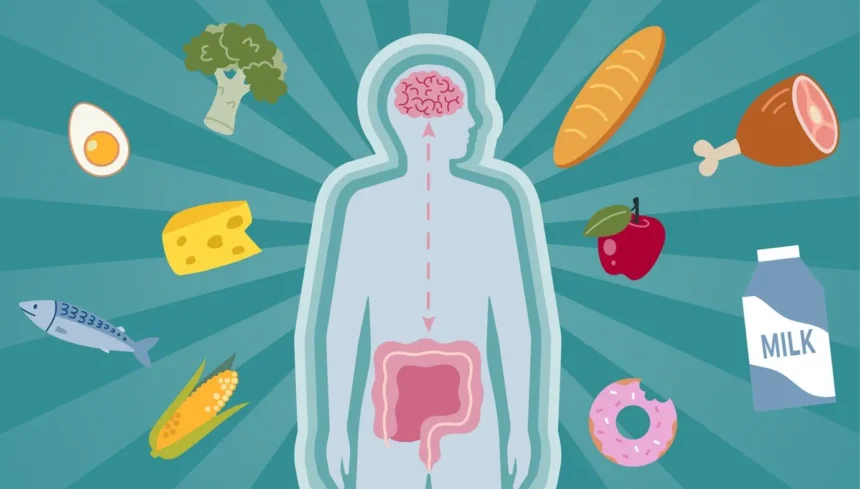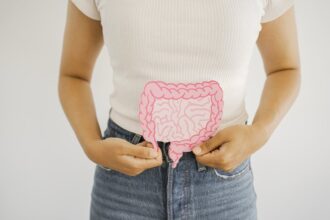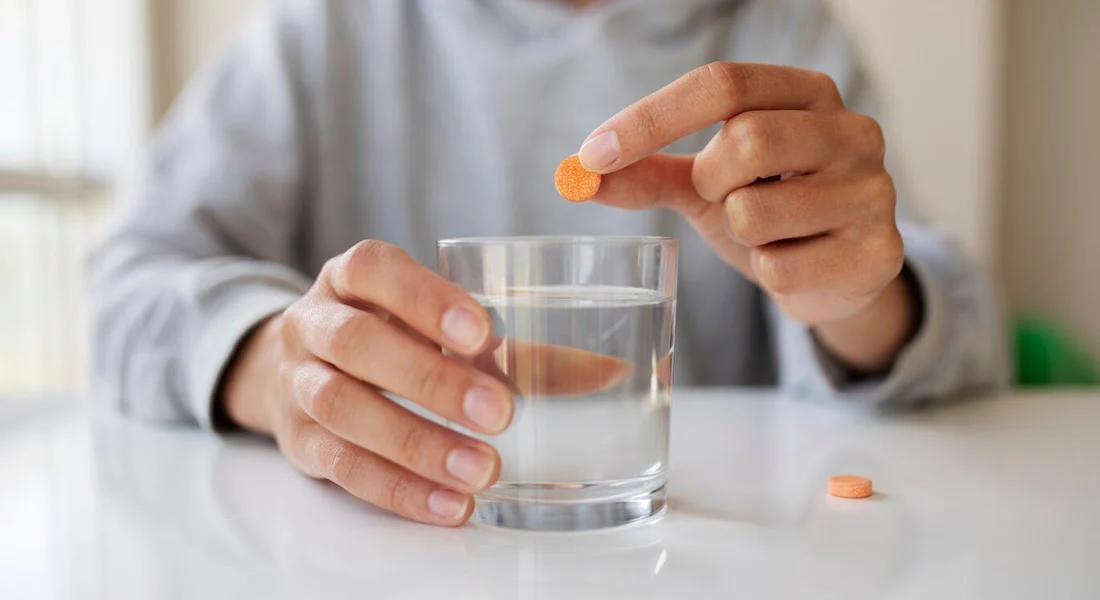The gut-brain axis is the major communication link between your stomach and your brain. Many people believe the gut only helps with digestion, but it actually also affects your emotions, focus, energy, sleep, and overall well-being. When your gut is upset, your mood may shift. When your mind is stressed, your digestion becomes slow or uncomfortable.
This beginner-friendly guide explains how this connection works and how you can support it through simple daily habits. The goal is to help you feel lighter, calmer, and healthier with natural methods.
Why the Gut-Brain Axis Matters for Your Health
Your gut is filled with nerve cells and trillions of helpful bacteria known as the gut microbiome. These tiny organisms control digestion, vitamin production, inflammation, and even mood chemicals like serotonin. More than 90% of serotonin is produced in the gut.
When this gut ecosystem becomes unbalanced, the body can show symptoms like:
- Bloating or constipation
- Mood swings or anxiety
- Brain fog and low energy
- Poor sleep
- Inflammation or skin problems
A healthy gut helps the brain send stable, positive signals, improving both digestion and emotional balance.
Simple Signs of an Unbalanced Gut-Brain Axis
Many people deal with gut-brain imbalance without realising it. Common signs include stomach discomfort, frequent bloating, sudden mood changes, irritability, stress, tiredness, and trouble focusing.
If you experience both emotional and gut-related symptoms, it may be time to support your gut-brain axis naturally.
How a Healthy Gut Supports Better Mood
When you eat nutrient-rich foods and take care of your gut, your body produces more calming chemicals. Healthy gut bacteria release neurotransmitters that help you feel relaxed, focused, and happy.
This is why improving digestion often leads to better mood, more mental clarity, and reduced anxiety.
How Stress Impacts Digestion
Stress is one of the biggest enemies of gut health. When the brain senses stress, it reduces stomach acid, slows digestion, and tightens gut muscles. This can lead to discomfort, gas, or loss of appetite.
Long-term stress can weaken the gut lining and reduce healthy bacteria. This creates a cycle where stress worsens digestion, and poor digestion increases stress. Breaking this cycle is essential for long-term health.
Natural Ways to Balance the Gut-Brain Axis
Eat More Fiber-Rich Foods
Fiber feeds healthy gut bacteria and keeps digestion smooth. When you eat fruits, vegetables, whole grains, nuts, and seeds, your gut becomes stronger and less inflamed. Fiber also helps stabilise mood by controlling blood sugar levels.
Add Fermented Foods
Foods like curd, yoghurt, dosa batter, kimchi, miso, and kombucha add beneficial bacteria to your gut. These foods help boost digestion and improve the signals sent to the brain.
Drink Enough Water
Water supports digestion and helps nutrients move through your body. Dehydration can slow your gut and affect your mood. Drinking enough water daily keeps your system active and healthy.
Choose Healthy Fats
Healthy fats such as nuts, seeds, olive oil, and fish support the brain and reduce inflammation. They help the gut absorb important vitamins that stabilise mood and energy.
Move Your Body Every Day
Physical activity increases good bacteria, reduces stress, and boosts mood. Even a 20-minute walk every day can support the gut-brain axis.
Prioritise Good Sleep
Your gut repairs itself while you sleep. Poor sleep harms digestion and increases anxiety. Aim for seven to eight hours of sleep each night to support your gut and brain.
Practice Deep Breathing or Mindfulness
Meditation, yoga, or slow breathing reduces stress signals sent by the brain. When your mind is calm, your digestion becomes smoother and more efficient.
Reduce Processed Foods
Foods high in sugar, preservatives, and artificial flavours disturb the gut microbiome. Choosing natural, whole foods helps maintain a healthy gut balance.
Reduce Caffeine and Alcohol
Too much caffeine or alcohol weakens the gut lining and increases anxiety. Reducing intake can help improve both mood and digestion.
Use Prebiotics and Probiotics Carefully
Prebiotics feed good bacteria, while probiotics add new healthy bacteria. Start with natural foods first, and consult a healthcare expert before taking supplements.
Why Consistency Is the Key to a Healthy Gut-Brain Axis
Balancing the gut-brain axis does not happen overnight. Small daily habits bring the biggest long-term results. When you support your gut with consistent choices, your mood becomes more stable and your digestive system works smoothly.
For more easy health guides and beginner-friendly wellness content, you can explore related articles on HealthGuiders.com to support your healthy lifestyle journey.
Call to Action
If you want simple, effective, and natural health tips, visit HealthGuiders.com for daily wellness guides, healthy routines, and easy steps to live a balanced life. Stay informed and take control of your health with our expert-backed guides.
Frequently Asked Questions
What is the gut-brain axis in simple words?
It is the communication line between the stomach and the brain. They send messages to each other and affect both mood and digestion.
Can gut health affect mood?
Yes. A healthy gut produces serotonin, the chemical that controls happiness, calmness, and emotional balance.
How long does it take to improve gut health?
You may see small improvements in two to four weeks. Long-term results need steady habits over several months.
Does stress slow down digestion?
Yes. Stress reduces stomach acid, slows digestion, and can cause discomfort or bloating.
Are probiotics useful for beginners?
They can help, but it is better to start with natural foods and talk to a doctor before taking supplements regularly.




